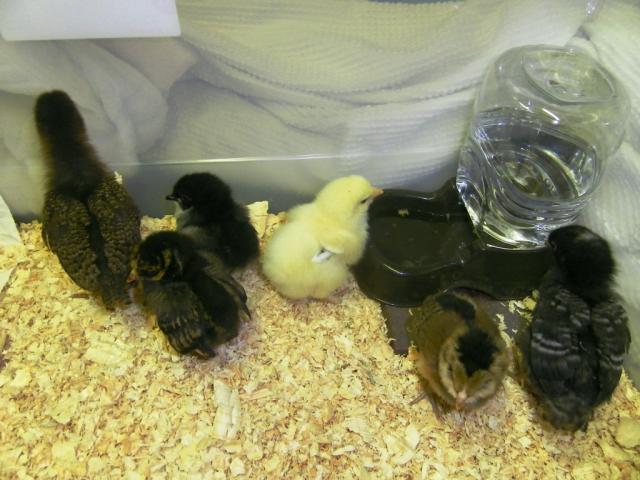Moabite, do you know what is in the repellent you can get to put on tents and campgear? I recall seeing a product for use on things that wouldn't be in contact with your body- that was supposed to be a long lasting repellent for gear- it would supposedly work for a small radius around the area sprayed.
I'm wondering if something like that couldn't be used as a perimeter barrier for the roosting area if you put it on the wall or ceiling surfaces that the bird won't be on...I think we do a great job controlling them around here with our concoction, but I think it's worth looking at alternatives. I also remember a gal at work telling me about her brother who was in the military and how he was given a single application of some super-repellent and it worked for months...like Frontline for humans. Wonder what that was!?
I've thought about putting screen on the windows of the coops. It could be done with el cheapo tulle from the fabric store, if nothing else!
I feed mine garlic, cayenne, turmeric and cinnamon in their feed- lots of it. I wonder if that doesn't help a bit?
I'm wondering if something like that couldn't be used as a perimeter barrier for the roosting area if you put it on the wall or ceiling surfaces that the bird won't be on...I think we do a great job controlling them around here with our concoction, but I think it's worth looking at alternatives. I also remember a gal at work telling me about her brother who was in the military and how he was given a single application of some super-repellent and it worked for months...like Frontline for humans. Wonder what that was!?
I've thought about putting screen on the windows of the coops. It could be done with el cheapo tulle from the fabric store, if nothing else!
I feed mine garlic, cayenne, turmeric and cinnamon in their feed- lots of it. I wonder if that doesn't help a bit?






